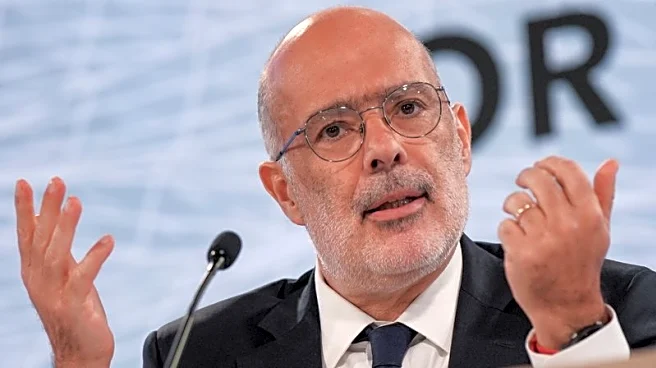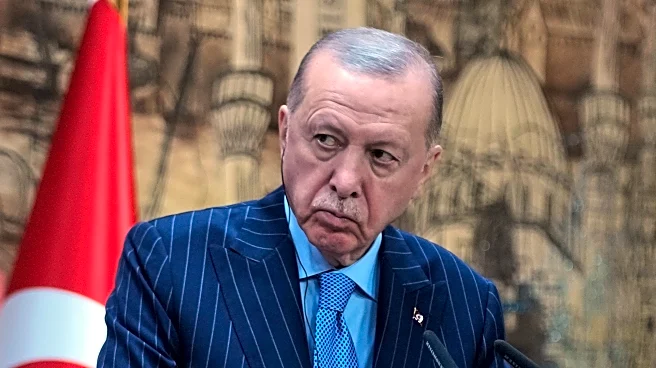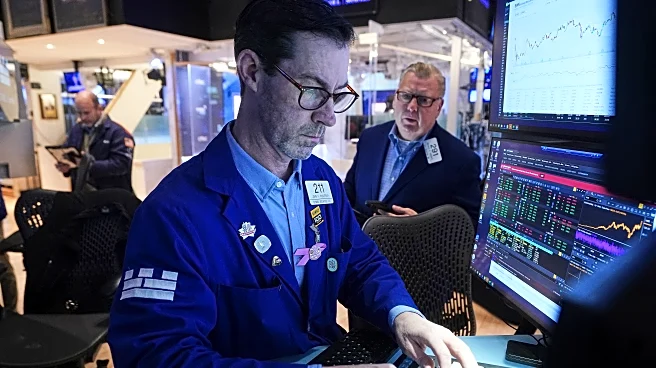By Rodrigo Campos
(Reuters) -Latin America and the Caribbean face slower growth and lingering inflation pressures as the global economy adjusts to major policy shifts and persistent geopolitical tension,
the International Monetary Fund said on Friday in its latest Regional Economic Outlook.
The IMF said earlier this week it expects the region to grow 2.4% in 2025, slowing to 2.3% in 2026 as the post-pandemic rebound fades and global trade tensions weigh. Despite a slowdown in inflation, several countries are still expected to miss their targets. In its World Economic Outlook released on Tuesday, the IMF upgraded its forecast for global growth this year because of milder-than-expected effects of tariff shocks and more benign financial conditions.
The fund said governments in the region should put debt on a stable path, coordinate fiscal and monetary policy, and make it easier for businesses to grow. Delays, it warns, could make even these modest growth forecasts harder to achieve.
Debt is again near highs reached during the COVID pandemic and the fund estimates that for Brazil, Chile, Colombia, Mexico, Paraguay, Peru and Uruguay, the region’s largest economies excluding Argentina, governments need to raise primary balances by about 1.5 percentage points of GDP compared with 2024 to stop debt ratios from worsening.
“Whether it’s spending or revenues … those things matter almost everywhere in the region,” said Rodrigo Valdes, the IMF’s outgoing director for the Western Hemisphere. “There’s a lot of deductions in the tax codes … the base of taxes is smaller than it should be.”
CREDIBILITY AND POLITICS
The fund called for credible, multiyear fiscal plans, better tax collection and more efficient spending. The goal, it said, should be to stabilize debt without cutting investment or core social programs.
Valdes, who will become director of the IMF’s fiscal affairs department on October 27, said “it is always politically super difficult, but it’s never too late to deploy a plan that is credible.”
Such credibility, Valdes said, can help attract investment. “If you believe that the economy will be growing faster in two, three years’ time, you invest today,” he said. “The critical point is how to make a package that is a sequence of things that make tangible or credible that this will happen.”
COORDINATION AT RISK
The IMF warned of the risk of conflicting signals from fiscal and monetary authorities. It highlighted Brazil and Mexico as key countries where this could matter.
“Lack of coordination is a problem, like driving one car with two drivers, one braking and the other accelerating. That’s not great,” Valdes said.
The fund stressed that central banks work best when public finances are stable. High debt and weak fiscal signals can limit the impact of interest rate moves and undermine confidence in the policy mix.
The fund sees potential growth stuck around 2.5%, well below other emerging markets. It pointed to weak productivity, too much red tape and not enough regional trade.
“I think in the region, the predictability, rule of law, crime … that is very unique in the region, and we need to improve much more so that investment can come fast,” Valdes said. “The second thing is to have more regional trade integration.”
(Reporting by Rodrigo Campos in New York; Editing by Andrea Ricci)










